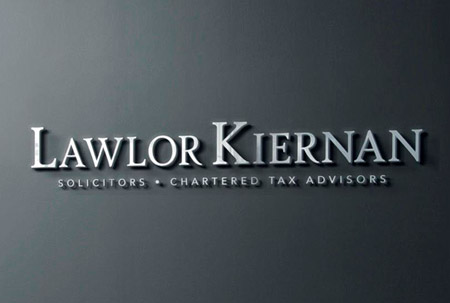Accepting compensation and cashing your cheque shouldn’t mean that you’re giving up your rights to appeal the decision.
What does the tracker mortgage scandal mean for you?
Q&A: Are you affected? How much could you get in compensation?
Wed, Dec 21, 2016 – Fiona Reddan
It started with little more than a whisper, but it is slowly evolving into a roar. Last year it was revealed that 1,372 homeowners were overcharged on their mortgages by Permanent TSB, and during the summer a similar practice emerged at AIB.
Then, on December 19th, the Central Bank disclosed that “at least” 8,200 homeowners were denied a tracker mortgage by their lender, and barely a day later, Central Bank Governor Philip Lane conceded the number affected in the tracker mortgage scandal could be as high as 15,000.
So is it likely to end there, or, as the investigation deepens, could further mortgage misdeeds be uncovered? And if so, could you be affected?
It’s worth considering how much of the mortgage market is involved. As of September 2016 for example, Central Bank figures show there were approximately 740,000 mortgage accounts in Ireland, with an outstanding value of about €71.8 billion.
Of these, some 42 per cent, or about 310,800 mortgages (both residential and buy-to-let) were on a standard variable rate as of September 2016, while a further 46 per cent (340,000) were on a tracker, and the remaining 11 per cent (81,4000) were fixed.
So, it could be argued that 15,000 mortgages, or about 2 per cent of the total mortgage market (and this is based on today’s data, rather than when the incidents happened) is not a significant figure. Nonetheless, it is still a considerable number of people impacted.
Who has been affected?
So far, it seems the people mainly affected by the scandal are those homeowners who were either denied a right to, or the option of, a tracker rate of interest, or the correct tracker rate of interest was not given to them in accordance with their contract.
AIB, for example, says its affected customers were on a tracker interest rate and then moved to a different rate, such as a standard variable rate (SVR) or a fixed rate, or were on a tracker interest rate but their margin increased.
Who has been notified?
As part of the review and investigation, lenders have started writing to their customers informing them of the mistake, advising them of the adjustment to the rate applied on their mortgage, and indicating how much they will be reimbursed.
But it’s important to remember not everyone has yet been notified.
It’s understood that AIB sent out some 2,600 letters in November, but the bank says the process is “ongoing” so new cases could still be identified. Permanent TSB sent out letters to the 1,300 or so of its impacted customers last year but as its mortgage review is also ongoing, the banks says it is still possible it will identify additional customers.
Similarly, Bank of Ireland says it has commenced contacting impacted customers, but its review is “still in progress”; while Ulster Bank says it has not yet contacted everyone as its review is also “in progress” and it will “take a number of months due to the scale and complexity of the review”.
So, there is still potentially a significant number of people who are likely to hear from their lender over the coming weeks and months.
How much am I owed?
If you suspect you were overcharged, you may be anxious to find out how much you will be due back. However it’s not an easy calculation.
On personal finance advice website Askaboutmoney. com, Brendan Burgess has some useful calculators that might help. He gives the example of someone with a €100,000 mortgage over 20 years at an interest rate of 5 per cent. As the correct rate on the mortgage should have been 4 per cent, the person should be due a refund cheque of some €12,036.
But in addition to the amount people are owed, calculated as the differential in interest between the rate that should have been applied and the rate that was, mortgage account holders are also being offered compensation, but this differs from bank to bank.
Ulster Bank declined to indicate how much it is offering, but it is understood that Permanent TSB is offering 10 per cent, while AIB is offering up to 15 per cent on home loans, and 7.5 per cent on buy-to-let mortgages. Those affected are also being offered a fee towards the cost of professional advice. This means that if you are owed €30,000 from PTSB for example, you could stand to gain an additional €3,000 in compensation.
However, as the process is “ongoing”, those affected may not receive the money owed to them until sometime in 2017.
Remember, if the bank says you were overcharged and tells you by how much, make sure you get a copy of its calculations and either check the figures carefully yourself, or get them verified professionally.
Can I appeal the compensation offered?
Accepting compensation and cashing your cheque shouldn’t mean you’re giving up your rights to appeal the decision. If you feel the compensation offered isn’t sufficient, you can bring a case, where appropriate, to your bank’s appeals panel, the Financial Ombudsman, or the courts. A number of legal firms are understood to be acting for some affected customers.
Niall Kiernan, a litigation solicitor at Lawlor Partners, is speaking to an increasing number of people concerned that the level of compensation being offered isn’t sufficient.
“The banks are trying to downplay it but it’s a huge deal for people,” says Kiernan, noting that some of his clients have argued that if they had the money they lost due to over-charging they would have had another child, would have invested it, or sent their kids to private school. “What we are saying is that there is no way banks can calculate [the compensation] at a flat rate.”
The option he is offering clients is to sue the bank for breach of contract and let the courts decide the amount of compensation. He expects to bring a test case to court in the new year. Of course the risk for people considering bringing legal action is the costs they could face should they lose.

